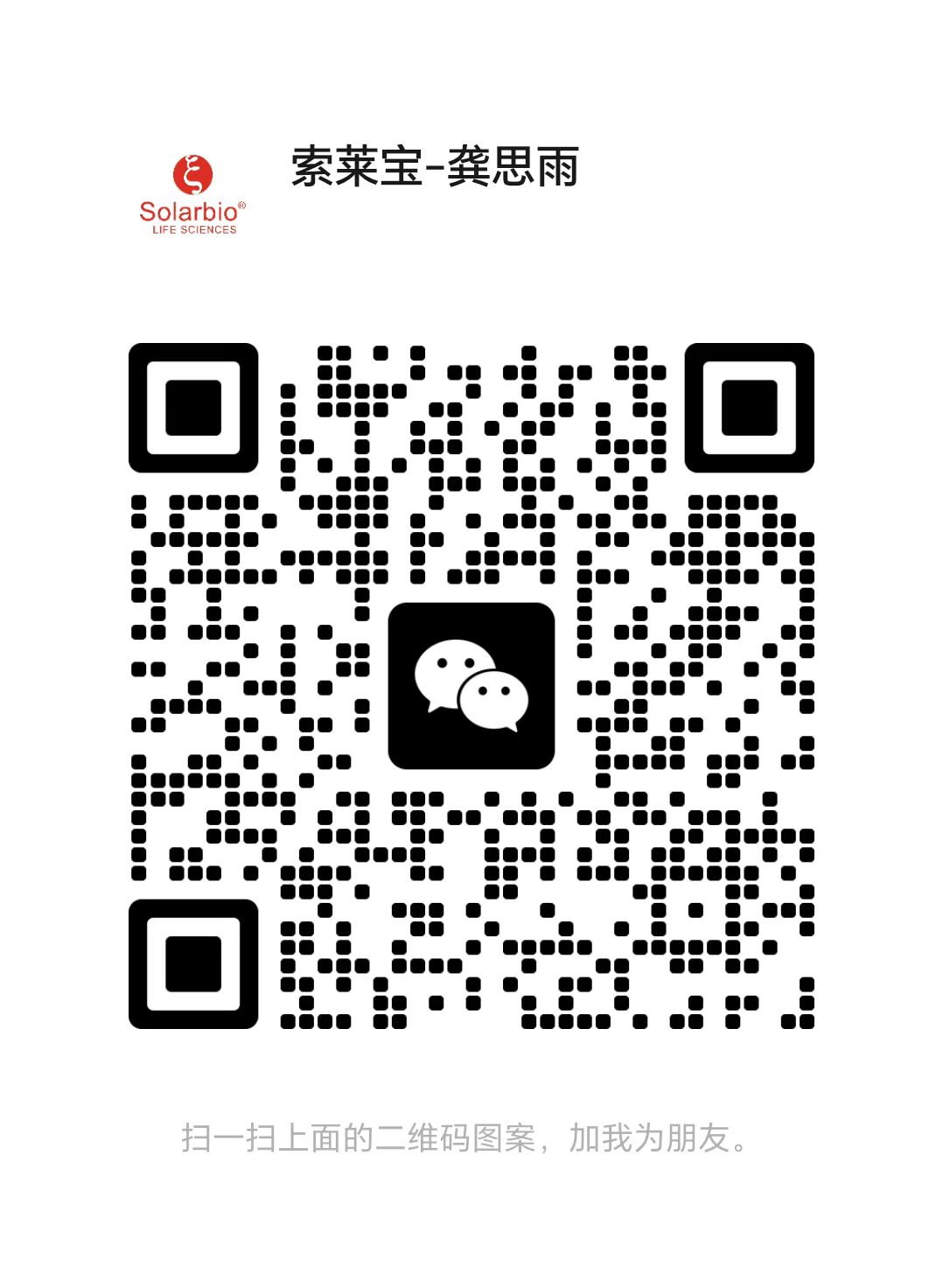
Anti-TAB1(N-term) Monoclonal Antibody
产品名称: Anti-TAB1(N-term) Monoclonal Antibody
英文名称: Anti-TAB1(N-term) Monoclonal Antibody
产品编号: K001402M
产品价格: null
产品产地: 北京
品牌商标: solarbio
更新时间: 2025-02-07T13:54:15
使用范围: WB
北京索莱宝科技有限公司
- 联系人 : 索莱宝-龚思雨
- 地址 : 北京市通州区中关村科技园区通州园金桥科技产业基地景盛南四街15号85A三层
- 邮编 : 101102
- 所在区域 : 北京
- 电话 : 178****1073 点击查看
- 传真 : 点击查看
- 邮箱 : 3193328036@qq.com
- 二维码 : 点击查看
Anti-TAB1(N-term) Monoclonal Antibody
品牌:solarbio | 货号:K001402M
| 英文名称 | Anti-TAB1(N-term) Monoclonal Antibody |
|---|---|
| 别名 | 3'-Tab1;MAP3K7IP1 |
| 应用 | WB |
| 稀释比例 | WB 1:1000. |
| 交叉反应 | Human |
| 蛋白分子量 | 55kDa |
| Gene ID | 10454 |
| 保存 | Store at -20°C. Avoid freeze / thaw cycles. |
| 储存液 | Buffer: PBS with 0.02% sodium azide, 50% glycerol, pH7.3. |
| 纯化方法 | Affinity purification |
| 亚型 | unknown |
| 免疫原 | Purified recombinant human TAB1(N-terminus) protein fragments expressed in E.coli. |
| 性状 | 液体 |
| Public Immunogen Range | Purified recombinant human TAB1(N-terminus) protein fragments expressed in E.coli. |
| Subcellular Locations | Cytosol Nucleus |
| Swiss Prot | Q15750 |
| 克隆号 | 3D10-G10-B6 |
| 克隆类型 | Monoclonal Antibody |
| 背景资料 | The protein encoded by this gene was identified as a regulator of the MAP kinase kinase kinase MAP3K7/TAK1, which is known to mediate various intracellular signaling pathways, such as those induced by TGF beta, interleukin 1, and WNT-1. This protein interacts and thus activates TAK1 kinase. It has been shown that the C-terminal portion of this protein is sufficient for binding and activation of TAK1, while a portion of the N-terminus acts as a dominant-negative inhibitor of TGF beta, suggesting that this protein may function as a mediator between TGF beta receptors and TAK1. This protein can also interact with and activate the mitogen-activated protein kinase 14 (MAPK14/p38alpha), and thus represents an alternative activation pathway, in addition to the MAPKK pathways, which contributes to the biological responses of MAPK14 to various stimuli. Alternatively spliced transcript variants encoding distinct isoforms have been reported |
